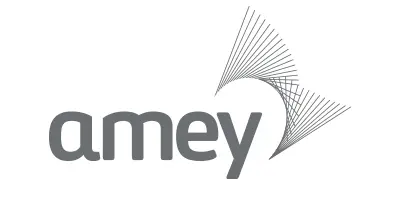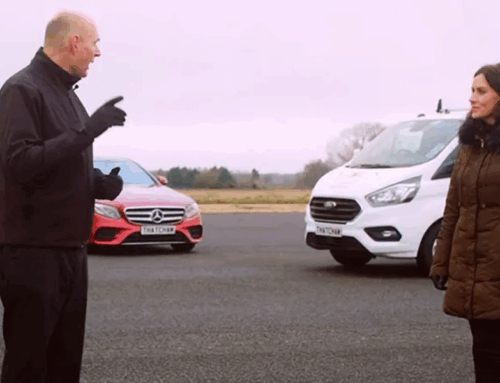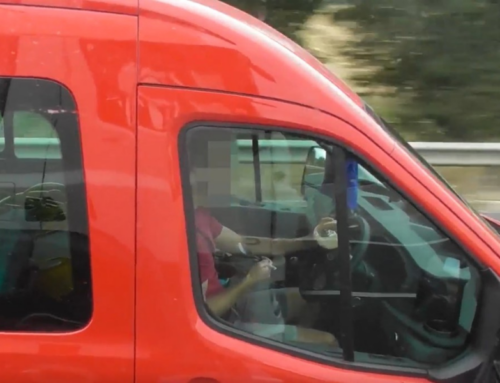Leadership needed to change behaviour
Managing Director of Amey Highways and Driving for Better Business Ambassador, James Haluch, explains why leadership is so important to managing occupational road risk.
Leadership is the ability to influence and empower others, and as Managing Director at Amey it’s my role to be able to recognise the positive impact making emotional connections with our people, our clients and our customers to champion road safety has on ultimately saving lives on the network.
Over 327 billion road miles are driven on our roads every year, with 468 casualties and five fatalities occurring every day, statistics that should shock and compel attitudes towards road safety to change – In the highways sector this is one of our biggest challenges.
At Amey, we’ve committed to looking at ways we can improve the safety of the network that our operatives’ class as their place of work and our customers rely on to travel from A to B, to reduce the daily incidents that are occurring, something I’m aware won’t change overnight.
Taking a natural step forward
Highways England’s Driving for Better Business (DfBB) campaign was a natural progression for us to further the work we’re developing to train and equip our people with the tools to ensure their safety whilst on the network. The principles behind this campaign directly align to my Vision 2030 but also to our core business value of Putting People First.
At Amey, we operate a fleet made up of 2,000 cars, 3,200 LCVs and 1,370 HGVs. These vehicles can be broken down further into the business areas my team and I manage – highways and waste collection. We operate over 355 cars, 870 LCVs and 1,160 HGVs as well as vehicles that are providing us new challenges in the shape of 166 refuse vehicles ranging from 7.5tonne to 32tonne.
In 2017, before we became a Driving for Better Business Champion, we reported almost 2,000 incidents involving our drivers, 63 per cent of those were our drivers’ fault. This cost our business over £5million in Amey repairs, third party claims and, unfortunately, a number of injuries to our people.
If we break this down to make meaningful comparisons, in the last quarter of 2017, pre-Driving for Better Business, we reported 596 accidents. In the same quarter in 2018, when we become champions we saw this decrease to 562 and in the first quarter of 2019 this figure has now decreased to 382 showing the positive impact being a business champion is having on our business and the leadership required to drive a change. We expect this figure to continue to decrease as more of our business areas adopt the new behaviours.
Becoming a business champion
When we considered becoming a DfBB champion, our procedures and policies already showed we had a strong fleet management process. To achieve business champion status, we had to demonstrate our driving processes and outline the steps we’d take for the continuous, effective management of our fleet.
It was a simple process; however, it required the support and leadership of our Fleet Compliance team, Road Risk Manager and our network of Transport Managers from across the business to publish cases studies that showcased how we’ve been championing our driver status – the campaign fundamentally provided us an independent framework to self asses our own fleet management.
Receiving DfBB business champion status has provided us with the platform to take a leadership role to share best practice and make emotional connections that will bring about a necessary change in driver attitude and behaviour.
The gap analysis carried out through the framework gave us the opportunity to pull together a continuous improvement plan – including aligning our van safety procedures to those that we have for our trucks. We also looked at increasing our driver risk assessments to identify more areas for driver training – again, aligning the procedures for our van and truck drivers. We aligned how we addressed adding additional safety features onto short-term and long-term hire vehicles – making sure that each vehicle, regardless of its hire term, has all the necessary safety features we require.
As part of the application process, we learnt that the management of our data needed improving, so we’ve addressed this through the information supplied in our Power BI reports. The information these reports provide us range from hire and fuel spend to operator compliance risk scores and driver training. However, to make meaningful change we have to look beyond the framework.
Sharing best practice in other sectors
Alongside our commitment to the campaign, we’ve taken additional steps to reduce vehicle incidents and have seen some real tangible benefits around improving our driver training, our people’s behaviours and attitudes as well as gaining a greater understanding of how our people are using their vehicles;
- Our ‘fuel efficiency’ has increased by around 4 per cent in the last 12 months (Amey’s national bill is £1.6million per month)
- Our ‘CO2 emissions’ have decreased by just under 6 per cent in the last 12 months.
- Our ‘Fleet Utilisation’ has improved by around 30 per cent in the last 18 months.
Other areas of Amey have also seen the value in the DfBB campaign and are looking to emulate this as part of their Health and Safety strategies. Within our Consulting and Rail business we’re instigating work on Road Risk to develop a policy that aligns to the seven principles of the DfBB strategy to reduce the injuries occurring when our workers travel to and from the rail networks.
We’ve also begun the process to engage our supply chain partners to share with them best practice that can be used to enhance their processes, whilst continuing to learn from them and others to develop our approaches to driver safety. We’ve also initiated early conversations with our recruitment provider to ensure that any agency drivers we recruit are trained to this minimum standard.
Receiving DfBB business champion status has provided us with the platform to take a leadership role to share best practice and make emotional connections that will bring about a necessary change in driver attitude and behaviour. To date we’ve been able to share our experience and have had adult-to-adult conversations around the challenges we’ve faced and the steps we’ve taken to overcome them with highways professionals and other sectors, hopefully raising awareness of the positive impact improving driver training and businesses processes can have on keeping those on the network safe.

James Haluch
Managing Director, Amey Highways






